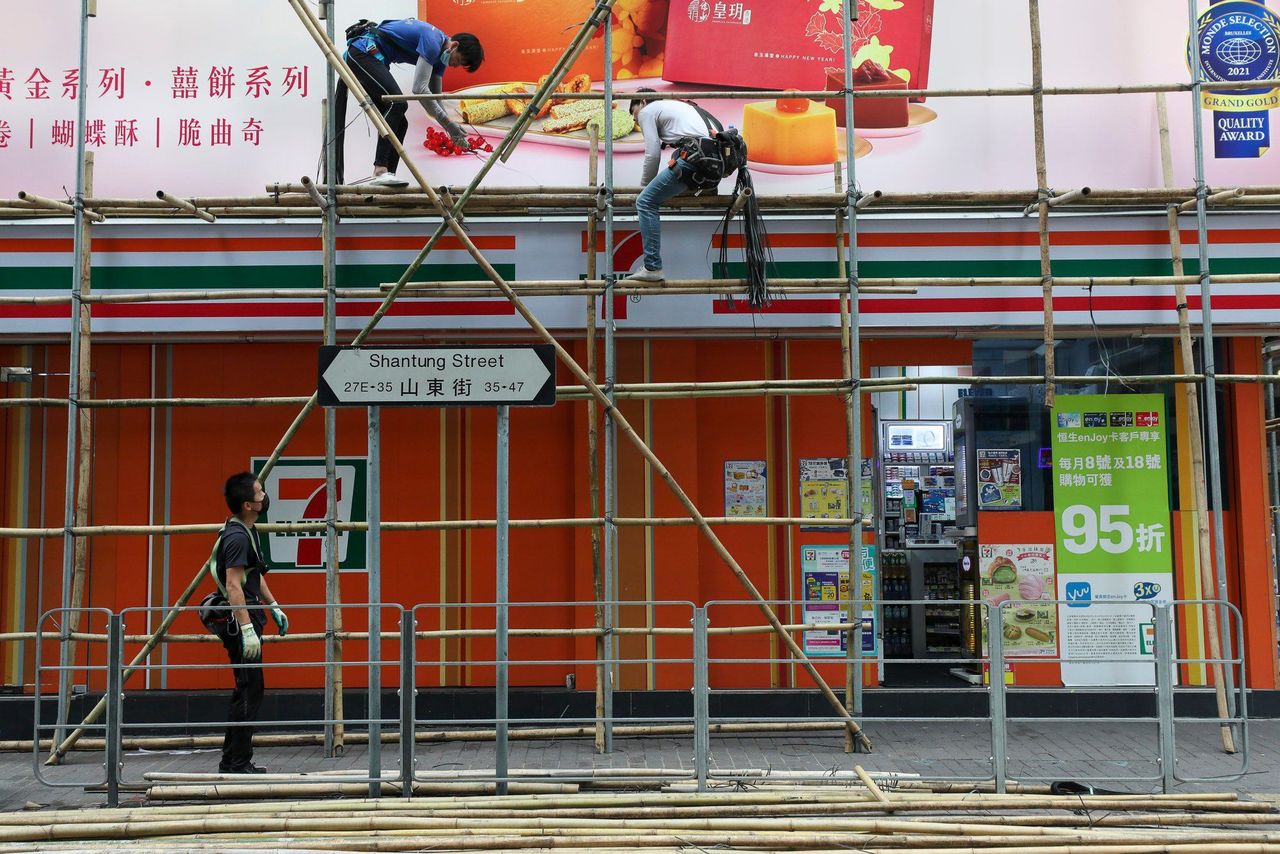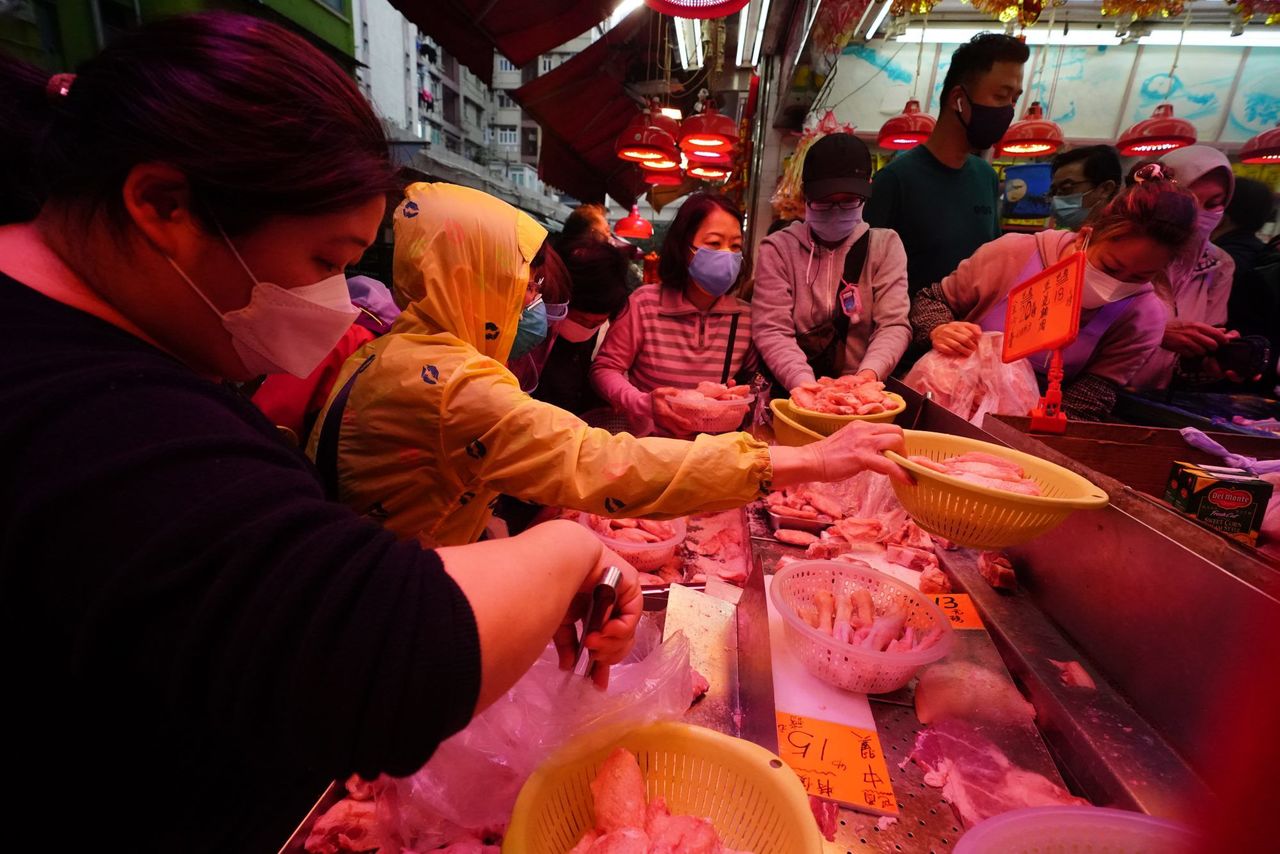Marked health inequalities exist in wealthy Hong Kong, and government intervention alone is not enough to address them. Civil society and businesses play a major role in the improvement of living and working conditions, thereby minimising illness and injury.
The Covid-19 pandemic has exposed the plight of the underprivileged in society. Imagine the life of a typical grass-root person in Hong Kong – for example, a contract cleaner working nine to 12 hours a day, six days a week, and earning just above the statutory minimum wage of HK$37.50 (US$8) per hour.
They can hardly afford any time for exercise or the money for a gym membership. The weather can be unforgiving – summer days are scorching, but those working outdoors may not have adequate access to basic amenities such as running water and shelter to rest and cool down. This is not to mention occupational hazards like falls and injuries.
It is therefore not surprising that the socially disadvantaged among us have worse health than others. Although Hong Kong is proud to have the world’s longest life expectancy, it does not necessarily mean all of its people are living healthy lives.
As shown in the recent Health Equity Report by Chinese University’s Institute of Health Equity, marked health inequalities exist in Hong Kong. Two of the findings are that chronic diseases are more prevalent among those with lower income; and those living in poorer neighbourhoods have a higher chance of death.
Many tend to think that health is about individual behaviour. But, very often, health choices are not free choices. It is the resources we have available, not our free will, that dictates whether we can afford healthcare for our children, the environment in which we work, the air we breathe in our neighbourhood, and the people from whom we seek health advice.
Some of the most advanced medical interventions would be of little use if a person is living in poverty or in cramped subdivided flats. These factors are collectively known as the social determinants of health, and they account for 30-55 per cent of our health outcomes, according to the World Health Organization.
So, our health is not only defined by things like seeing doctors, taking medicine or walking 8,000 steps a day. Unfortunately, there is always a tendency to assume that society can rely on medical solutions to cure social problems. At the end of the day, it does not matter how great our healthcare system is if we keep sending people back into the conditions that made them sick in the first place.
It is therefore welcome to see that, after government intervention, Hong Kong’s poverty rate in 2020 dropped to 7.9 per cent. Still, we can expect the poverty situation to deteriorate following the fifth wave of Covid-19 in early 2022, the economic impact of which will be hardest on grass-roots workers.
The good news is that companies and civil society can do much to reduce or eliminate health inequalities. Particularly, businesses have a key role to play in improving people’s health. For starters, the bottom line is that the working environment should be conducive to the health of employees and free from occupational hazards.
Scholars and social welfare advocates also urge employers to pay a living wage, so that employees can afford basic provisions for their families, such as food, healthcare and housing.
 Men work on bamboo scaffolding in Mong Kok on May 23. Employers must
ensure the working environment is free from occupational hazards.
Men work on bamboo scaffolding in Mong Kok on May 23. Employers must
ensure the working environment is free from occupational hazards.
Besides, some big employers have started to improve employees’ health by providing exercise facilities, healthy meals, or counselling services to improve mental health.
The WHO has found that working 55 hours or more every week is an occupational risk factor linked with a higher risk of cardiovascular diseases. The UK has just embarked on the world’s biggest trial of a four-day working week, with 70 companies taking part.
Overall, there is plenty of scope to be creative, but the essence is to ensure that health and personal empowerment becomes the ethos of business.
Companies could also pay more attention to the health effects of their goods and services on end users and the wider community. For example, the unaffordability of some healthy food and the limited choices available can be a major obstacle to a healthy diet.
According to a survey by Polytechnic University in 2016, 65 per cent of those aged between 15 and 59 ate out four or more days a week, and a third ate out every day. The recent increase in food costs as a result of the pandemic and supply chain disruptions will hit the underprivileged hardest.
 People buy food from a wet market in Mong Kok on February 28. Rising
food costs amid the pandemic and supply chain disruptions will hit the
underprivileged hardest.
People buy food from a wet market in Mong Kok on February 28. Rising
food costs amid the pandemic and supply chain disruptions will hit the
underprivileged hardest.
It is in businesses’ best interests to take health equity into account in their operations. Investors have begun to pay attention to companies’ performance in environmental, social and governance (ESG) indicators. But as Professor Michael Marmot, a pioneer of health equity research in the UK, pointed out in his latest report, ESG must become “ESHG” to include “health” more explicitly.
Businesses will be more productive with a physically and mentally healthy workforce. They will also be recognised as responsible actors in improving people’s quality of life and the environment, and become forces for good in society, thereby attracting and retaining talented people who care about more than just a pay cheque.
Action on the social determinants of health require across-the-board efforts by the government, civil society and businesses, not just the healthcare sector. Evidence shows we can reverse the systemic differences in health across society with appropriate policies and actions. But, we have to want to make a difference.















